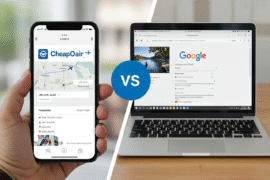This article may contain references to products or services from one or more of our advertisers or partners. We may receive compensation when you click on links to those products or services. Nonetheless, our opinions are our own.

Updated by Albert Fang
If you are going on an expensive or long trip, buying travel insurance is a great idea to protect you in case anything unforeseen happens. The trip may be cancelled due to circumstances beyond your control, like a hurricane rolling in to the islands just before your getaway is planned or a civil conflict that throws the country you are planning to visit into chaos. If this does happen, travel coverage will reimburse you for the lost money paid for plane tickets and hotels, which are typically non-refundable.
Travel Insurance Benefits
Travel insurance can also help pay for the costs of medical treatment if you get sick while on vacation outside your home country. A foreign hospital stay can be very expensive, and some medical facilities in other countries will refuse to treat you if you do not have insurance coverage. Having insurance protects you in these circumstances and helps you relax while you have a good time.
Anytime that you are booking a trip to a region of the world that experiences extreme weather events or has ongoing political conflict, its wise to get insurance to protect you. This includes travelling to popular destinations like the Caribbean, Central America and the Florida Keys during hurricane season, which typically runs from Summer until November. Even if a hurricane does not make landfall, evacuation warnings can ruin your vacation plans or cause your hotel to cancel your stay at the last minute. Flights may be cancelled, making it impossible to get there.
Some types of travel insurance also cover you in case you have to cancel the trip for your own reasons, like a scheduling conflict, sickness or family emergency. This coverage is a must have if you have a busy work schedule that is always changing, or children with a full schedule of activities. It gives you the freedom to change your mind at any time without being punished financially.
Minimum Required Purchase Date
For the insurance to be valid, you must buy it within a certain time of booking the trip. This is what is known in the travel insurance world as the initial trip deposit date. A typical travel insurance policy has stipulations saying you must purchase it within 14 days of this initial trip deposit date for the policy to be valid. If you purchase outside of these dates and try to use the insurance, the claim is likely to be rejected once the company investigates the paperwork.

Reviewed and edited by Albert Fang.
See a typo or want to suggest an edit/revision to the content? Use the contact us form to provide feedback.
At FangWallet, we value editorial integrity and open collaboration in curating quality content for readers to enjoy. Much appreciated for the assist.
Did you like our article and find it insightful? We encourage sharing the article link with family and friends to benefit as well - better yet, sharing on social media. Thank you for the support! 🍉
Article Title: When Should You Get Travel Insurance Benefits
https://fangwallet.com/2018/05/01/when-should-you-get-travel-insurance-benefits/The FangWallet Promise
FangWallet is an editorially independent resource - founded on breaking down challenging financial concepts for anyone to understand since 2014. While we adhere to editorial integrity, note that this post may contain references to products from our partners.
The FangWallet promise is always to have your best interest in mind and be transparent and honest about the financial picture.
Become an Insider

Subscribe to get a free daily budget planner printable to help get your money on track!
Make passive money the right way. No spam.
Editorial Disclaimer: The editorial content on this page is not provided by any of the companies mentioned. The opinions expressed here are the author's alone.
The content of this website is for informational purposes only and does not represent investment advice, or an offer or solicitation to buy or sell any security, investment, or product. Investors are encouraged to do their own due diligence, and, if necessary, consult professional advising before making any investment decisions. Investing involves a high degree of risk, and financial losses may occur including the potential loss of principal.
Source Citation References:
+ Inspo












































